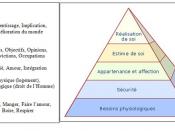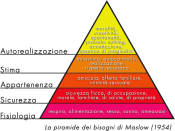Motivation is not a 'one-size-fits-all' topic and often the role of personality differences, and in particular an individuals 'thinking style', is often overlooked. Everyone has their own personal motivators, intrinsic and extrinsic, two general themes seem to run through most of the research I have completed, expectancy and equity, these theories argue that whatever the remuneration employees need to be fairly treated, fairly rewarded and where performance related pay comes into discussion, that all employees should be in possession of the ability to perform the task for the performance-related pay to be effective. However, Victor Vroom (1), who based his studies on extensive 500 research investigations, concludes that there is no all-embracing motivational theory. Handy (2) suggests that the research for the definitive solution to the motivation problem, only a part of which is a fair rate of pay, is another endless quest for the Holy Grail in organisational theory.
Porter and Lawler (4) emphasised that the expectancy theory is just a framework of requirements for motivational strategies. Equity and expectancy theory do not provide managers with a direct recommendation, but with a model within which performance-related pay schemes can be operated willingly and successfully
Maslow's hierarchy of needs is one of the earliest theories, (1) and translates into the "What's in it for me?" theory; Maslow suggested five levels of need:
1. Physiological: biological needs such as food and drink
2. Safety/security: a secure and non-threatening environment
3. Belongingness: social needs, a sense of attachment and affiliation
4. Esteem: both self-esteem and esteem from others
5. Self-actualisation: the need for self-fulfilment, achieving potential.
Maslow suggests that once a level of need was satisfied, it no longer acted as a motivator and the next level of need had to be brought into play in order to motivate the individual. According...



Brilliant!
fantastic essay, good use of source material. well done keep it up :-D
7 out of 9 people found this comment useful.